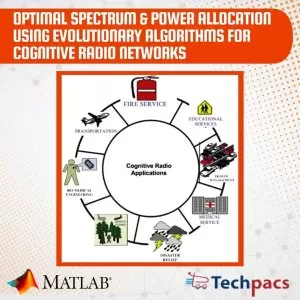Channel-Aware Detection of Selective Forwarding Attacks in Wireless Mesh Networks (WMNs)
Problem Definition
Problem Description:
The increasing threat of selective forwarding attacks, specifically gray hole attacks, in wireless mesh networks (WMNs) is a significant concern for network security. These attacks result in malicious mesh routers selectively dropping packets, leading to degraded network performance and potential denial of service (DOS) situations. Previous studies have focused on detecting the presence of such attacks in the network, but there is a need for an approach that directly addresses the issue of packet dropping caused by these attacks, which can result in poor channel quality.
The problem lies in effectively identifying and mitigating the impact of selective forwarding attacks on WMNs. Current solutions may not be sufficient in addressing this specific issue, leading to continued vulnerabilities and potential disruptions in network operation.
A channel-aware detection (CAD) algorithm is proposed in this project to differentiate between normal channel losses and those caused by malicious packet dropping. By utilizing channel estimation and traffic monitoring strategies, the CAD algorithm aims to identify attacker nodes that exhibit abnormal loss rates at certain hops in the network.
The challenge is to develop an effective method for detecting and mitigating selective forwarding attacks in WMNs to ensure network reliability, performance, and security. This project seeks to compare the effectiveness of the CAD approach with existing solutions through rigorous computer simulations to demonstrate its impact on combatting gray hole attacks in wireless mesh networks.
Proposed Work
The proposed work titled "Mitigating Selective Forwarding Attacks with a Channel-Aware Approach in WMNs" focuses on addressing the issue of denial of service attacks, specifically the selective forwarding attack known as the gray hole attack, in wireless mesh networks. The project aims to combat the problem of mesh routers forwarding only a subset of packets received while dropping others, leading to a degradation in channel quality. Unlike previous studies that focused on detecting the attack itself, this new approach introduces a channel aware detection (CAD) algorithm that can differentiate between normal channel losses and selective forwarding misbehavior. The CAD algorithm is based on channel estimation and traffic monitoring strategies to identify attacker nodes based on abnormal loss rates. The effectiveness of the CAD approach is evaluated through extensive computer simulations and compared to existing solutions.
This research falls under the categories of NS2 Based Thesis | Projects and Wireless Research Based Projects, with a specific focus on the subcategory of Wireless Security. The software used for this project includes NS2.
Application Area for Industry
This project's proposed solutions can be applied in various industrial sectors such as telecommunications, IoT (Internet of Things), critical infrastructure, and healthcare. In the telecommunications sector, where wireless mesh networks are commonly used for data transmission, the threat of selective forwarding attacks can lead to network downtime and compromised data security. Implementing the CAD algorithm can help in detecting and mitigating such attacks, ensuring reliable network performance and data integrity. In the IoT sector, where interconnected devices communicate wirelessly, the project's approach can prevent malicious packet dropping that can disrupt device communication and compromise privacy and security.
In critical infrastructure sectors such as energy and transportation, where wireless mesh networks are used for monitoring and control systems, the CAD algorithm can play a crucial role in safeguarding against cyber threats and ensuring uninterrupted operations.
Similarly, in the healthcare sector, where wireless networks are used for patient monitoring and data transmission, protecting against selective forwarding attacks is essential to ensure patient safety and confidentiality. By implementing the CAD approach, these industries can benefit from enhanced network security, improved performance, and reduced vulnerabilities to cyber attacks, ultimately leading to better operational efficiency and data protection.
Application Area for Academics
MTech and PhD students can utilize this proposed project in their research by exploring innovative methods to detect and mitigate selective forwarding attacks in wireless mesh networks. By implementing the channel-aware detection algorithm, students can analyze and compare its effectiveness with existing solutions through rigorous computer simulations. This project provides a unique opportunity for researchers in the field of wireless security to investigate the impact of gray hole attacks on network performance and security. MTech students and PhD scholars can leverage the code and literature of this project for their dissertations, theses, or research papers, enabling them to develop advanced solutions for combatting network vulnerabilities. Furthermore, the findings of this research can contribute to the development of new strategies for enhancing network reliability and performance in WMNs.
The future scope of this project includes exploring other types of attacks in wireless networks and further optimizing the CAD algorithm for improved detection and mitigation capabilities. This project offers a valuable platform for MTech and PhD students to pursue innovative research methods, simulations, and data analysis in the domain of wireless security, facilitating the advancement of knowledge and technology in this field.
Keywords
wireless mesh networks, WMNs, selective forwarding attacks, gray hole attacks, network security, denial of service, DOS, malicious mesh routers, packet dropping, channel quality, channel-aware detection, CAD algorithm, channel estimation, traffic monitoring, attacker nodes, abnormal loss rates, network reliability, network performance, network security, combating gray hole attacks, computer simulations, NS2 Based Thesis, Wireless Research Based Projects, Wireless Security, NS2
| Shipping Cost |
|
No reviews found!



















































No comments found for this product. Be the first to comment!